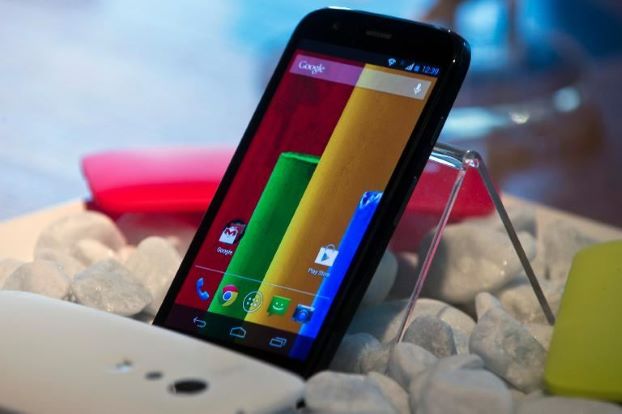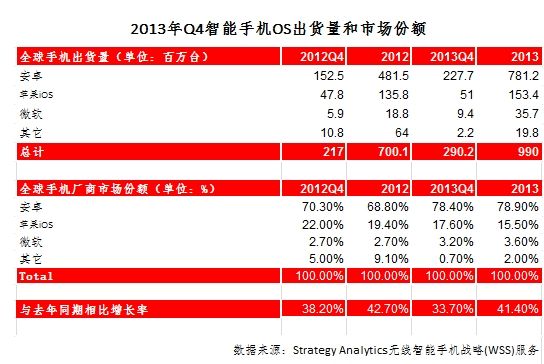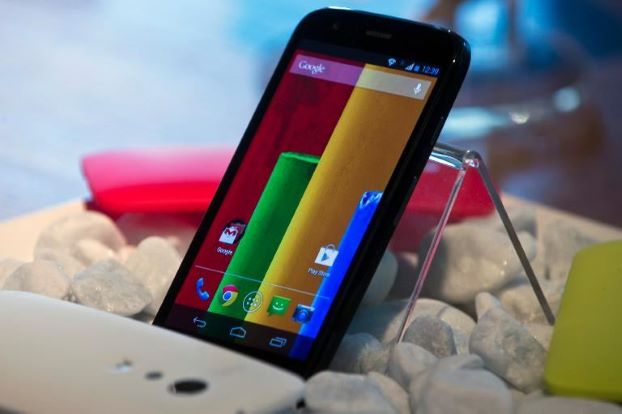
Google sells Motorola Mobility unit to Lenovo for $3bn
Smartphone of Motorola, “Motorola Moto G”, is displayed in Sao Paulo, Brazil on November 13, 2013

Google has sold struggling US mobile phone company Motorola Mobility to Chinese computer maker Lenovo for $2.91bn (£1.8bn), in a surprise move.
Google had paid $12.5bn for the company less than two years ago.
Lenovo plans to build up its smartphone unit through the Motorola purchase, which may help offset its slowing personal computer business.
However, Google will keep the majority of Motorola’s lucrative patents, which include one for Android software.
In a statement, Google said the smartphone market was “super competitive” and that Motorola would “be better served by Lenovo”.
Leo Kelion
Technology reporter
Google always said the motivation behind buying Motorola’s mobile phone business was its patents. This deal sees it keep most of them. That will help it fight future legal battles to protect its Android operating system.
The search giant had always kept the division at arms length, in part to tackle any perception that it would give its own hardware an unfair advantage against other phone sellers. The outcome was that third-party made Google Nexus-branded phones often stole the limelight.
Even when Google did invest in a reported $500m marketing blitz to promote Motorola’s flagship – the Moto X – in the US, the brand only made slight gains in marketshare.
A sale to Lenovo means Google can stop worrying about Motorola clocking up further losses. It will now be interesting to see if owning the brand can help Lenovo to do what other Chinese smart device makers have struggled at: cracking western markets.
The purchase is set to make Lenovo the world’s third-largest smartphone maker behind Samsung and Apple.
Market research firm Strategy Analytics said in a blog post that Lenovo had made “a good move” and would benefit from economies of scale.
“The Chinese vendor gets access to the valuable US smartphone market and the fast-growing Latin America region. This complements its existing global PC business.
“For Motorola, it gains access to an ambitious sugar daddy that has a strong presence in the huge China market. For Google, it divests a loss-making hardware division,” it said.
Chinese deal-maker
This is the second major acquisition for Lenovo in the same number of weeks.
Last Thursday, the Thinkpad-maker announced it had acquired IBM’s low-end server business for $2.3bn, in what was then China’s biggest technology deal.
Shares of Lenovo being traded in Hong Kong fell by more than 8% following the announcement, which came after the US market had closed.
“Whether Lenovo can turn around the long-struggling Motorola business, and what happens to the Motorola brand long-term, remain key questions that will need to be answered in the coming months,” Strategy Analytics said.
On a conference call following the deal’s announcement, Lenovo chief financial officer Wong Waiming said they were not concerned that they may have overpaid for Motorola.

Lenovo laptops
Lenovo is the world’s third-biggest personal computer maker
“Market prices go up and down and I would not take a one-day or half-day performance as a reflection of the market viewing it negatively,” he said.
Mr Wong also said there was “no urgent need” for the company to tap the capital markets for money to fund the Motorola purchase given it had more than $3bn in cash available.
Acquisition spree
The purchase of Motorola was Google’s largest acquisition and it signalled a growing effort by the search giant to enter the hardware business.
Motorola Mobility created the Moto X and Moto G phones.
Despite the sale, Google chief executive Larry Page insisted in a blog post: “This does not signal a larger shift for our other hardware efforts.”
The deal with Lenovo comes on the heels of an acquisition spree for Google.
In January, it snapped up DeepMind, a UK firm focused on artificial intelligence, and bought military robot-maker Boston Dynamics in December.
Global ambitions
In announcing Wednesday’s purchase, Lenovo cited the strength of Motorola’s brand, which has been revived in recent years with Google’s help.
“The acquisition of such an iconic brand, innovative product portfolio and incredibly talented global team will immediately make Lenovo a strong global competitor in smartphones,” said Yang Yuanqing, chief executive of Lenovo, in a statement.
“We will immediately have the opportunity to become a strong global player in the fast-growing mobile space,” he added.
He also noted the acquisition gives Lenovo an entry into the North American and Latin American markets, as well as a toehold in Western Europe.
The transaction must still be approved by US and Chinese regulators.

1月30日,联想集团今天早间宣布将以29亿美元从谷歌收购摩托罗拉移动。联想集团高管今天在谷歌总部完成了签约。


根据双方达成的协议,收购价约为29亿美元(可有若干调整),包括在收购完成支付14.1亿美元,其中包括6.6亿美元的现金,以及7.5亿美元的联想普通股股份支付,而余下15亿美元将以三年期本票支付。
谷歌将继续持有摩托罗拉移动大部份专利组合,包括现有专利申请及发明披露。作为联想与谷歌长期合作关系的一部分,联想将获得相关的专利组合和其他知识产权的授权许可证。
联想集团CEO杨元庆曾表示,三星和苹果公司是联想集团的主要竞争对手,联想集团希望未来在智能终端出货量上超过这两家公司。
IDC全球智能终端市场数据显示,联想、苹果公司、三星分别占据了PC、平板、智能手机市场的全球第一位置。但由于移动智能终端占比日益扩大,联想在全球智能终端市场的地位并不巩固。
并购摩托罗拉业务,将可以确保联想在智能手机市场确立第三的位置,同时也缩短与三星、苹果在整体智能终端市场的份额差距。IDC预计,联想的全球智能终端市场份额将因此提升约1%。
根据IDC全球智能终端市场数据报告,三星公司目前以23.6%的出货量市场份额排名第一,苹果公司以16.2%的市场份额排名第二,联想集团市场份额约为6.7%,而收购之后,将会攀升至7.4%。





Leave a Reply